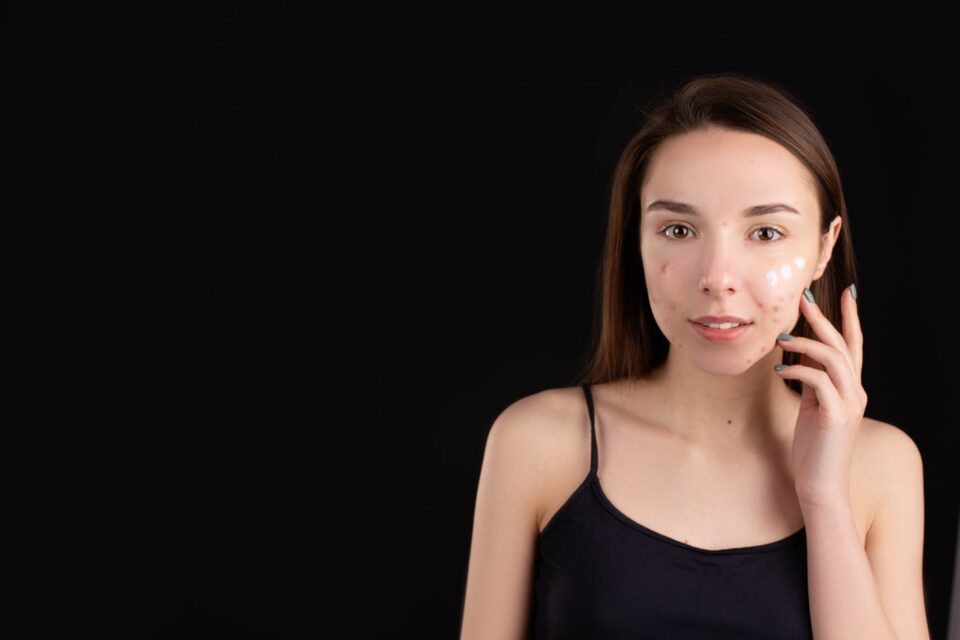Acne scars can happen for a number of reasons, but acne scars are usually either an indentation or a bump on the skin. These are different from acne, raised bumps filled with pus, white blood cells, and bacteria. Acne scars are created when the acne is popped by squeezing it manually or with acne medication.
But don’t worry! There are many reliable treatments out there for acne scars, so if you’re looking to erase those acne scars from your life, you can read this post for more information.
When you’re picking acne scar treatments, it’s important to know which type of acne scars you have. Listed below are two groups of acne scar treatments to inquire about to your skin specialist:
Medical Treatments
Medical acne scar treatments are acne scarring treatments that a dermatologist can prescribe. These acne scar treatment options work best for rolling scars and boxcar acne scars. Some of these treatments include:
Dermabrasion
The first acne scar treatment option for acne scars is dermabrasion. Dermabrasion is when the top layer of acne scars (epidermis) and acne bacteria (bacteria called Propionibacterium acnes) is sanded off with a heavy-duty sanding wheel that’s been dipped in abrasive material like sugar or salt crystals.
Microdermabrasion
The next acne scar treatment is microdermabrasion, which is less invasive than dermabrasion. Microdermabrasion uses tiny aluminium-oxide crystals to sand acne scars of the skin without affecting collagen.
Chemical Peels
Chemical peels are a third acne scar treatment option. Chemical peels work by removing acne scars with a chemical solution. The chemicals used in the acne scar treatment options below can make your skin peel, but this is a sign of healthy new skin growth underneath the acne scars.
Laser Acne Scar Treatments
Laser acne scar treatments are acne scarring treatments that use lasers to zap acne scars. The acne scar treatment options below work especially well since lasers can target specific wavelengths of light and make them pinpoint acne scars. This means the acne scars will heal faster than if you used a different acne scar treatment option.
RF Ablation
The acne scar treatment option that uses radiofrequency to repair acne scars is RF ablation. It works by using a probe, which has an electric charge on it, to pass over acne scars and clear up acne scars without hurting healthy tissue around acne scars.
Photodynamic Therapy
Another acne scar treatment option is photodynamic therapy, also known as Omega-PDT. This acne scar treatment option uses light energy treatments to get rid of acne scars while killing acne bacteria at the same time by using a topical cream called methyl aminolevulinate followed by a red or blue light.
Fractional Laser Resurfacing
Another acne scar treatment option is fractional laser resurfacing. Fractional laser resurfacing uses acne scar treatment lasers to damage acne scars without harming healthy skin tissue.
Fillers and Implants
Fillers and implants can be used to fill in acne scars on your face, such as acne ice pick scars and acne boxcar scars. These are best for boxcar acne scars that look like dents on the face. Fillers and implants require a few treatments overtime before they work since they only stay in the body for three months (this depends on the type of implant your doctor will give you).
Surgery
The acne scar treatment option that uses surgery to repair acne scars is acne scar surgery. Some acne scars can be cut away or stitched up with this acne scar treatment option, but acne scar surgery is only worth it for ice pick acne scars unless there are no other options available.
Home Remedies
If you want to get rid of acne scars at home, you can try using acne scar treatments that are affordable and safe. Some acne scar treatments to try include:
Salicylic Acid
The first acne scar treatment option to use at home is salicylic acid. Most acne creams have 0.5% of salicylic acid in them, which can treat acne scars when used regularly. You can buy stronger concentrations of salicylic acid, but make sure it says it’s safe for the face before applying it.
You just have to make sure not to leave it on your skin too long since this causes chemical burns, which are worse than regular acne scars since regular acne scars fade over time while chemical burns do not go away until treated by a dermatologist.
Retinoids
Another acne scar treatment option that can be used at home is retinoids, but only if your acne scars are not cystic acne. Retinoids cause acne to heal faster and fade acne scars over time while unclogging pores. Just make sure you buy the right strength of retinoid or consult a dermatologist before using it.
You should avoid using it on acne cysts because this causes irritation and redness, which will just increase bacteria growth in the area, causing more acne problems.
Benzoyl Peroxide
Benzoyl peroxide is an acne scar treatment you can use at home since most acne creams have around 3% of benzoyl peroxide in them. Just ensure to follow all directions for how often and how long to put acne cream with benzoyl peroxide on your acne scars.
Natural Oils
The last acne scar treatment option you can use at home is natural oils such as coconut oil, castor oil, argan oil, olive oil, etc. These oils can be applied to acne scars with a cotton swab or cotton ball. Make sure the acne scars are clean before applying these acne scar treatments since dirt and bacteria may cause more acne problems in the future.

